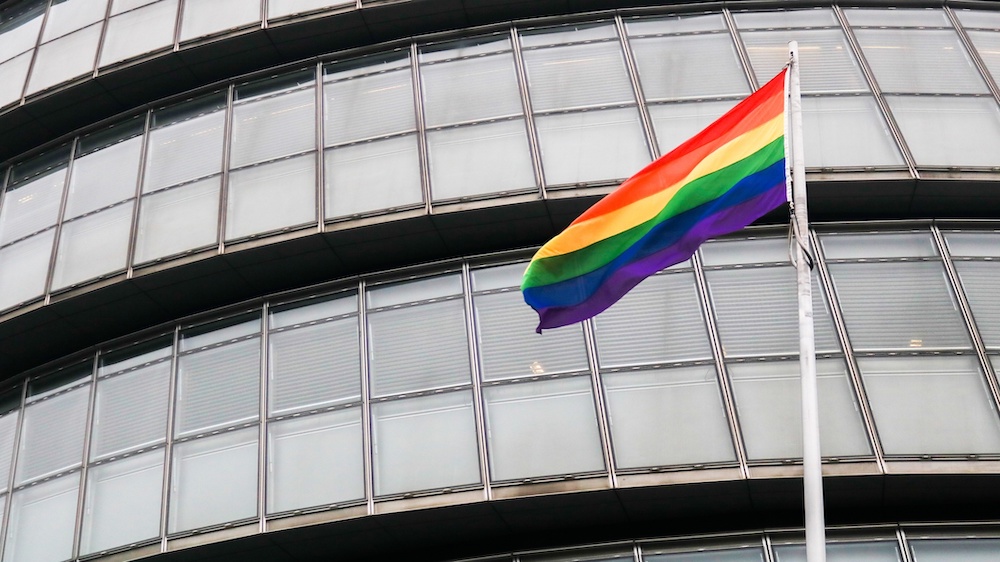If you’re interested in sharing your opinion on any cultural, political or personal topic, create an account here and check out our how-to post to learn more.
____
November 13–20 is Transgender Awareness Week, a time to raise awareness about and confront the challenges facing trans people. One of those challenges is employment.
Getting a job is not as easy as one, two, three, especially when you’re someone like me — young, Black, Queer, Transwoman, closeted and fresh out of college. On top of the difficulties inherent to finding a job, I have to worry about how my identities affect my ability to actually get and keep a job because I live in Tennessee, a place that has almost no legal protections against discrimination when it comes to my identities as a Queer Transwoman. This fact limits me well before I ever fill out an application. And in 2020, the Supreme Court will decide if discrimination against trans and other LGBTQ+ people in workplaces all over America is legal. Their decision will affect the foundation for what my life — and the lives of millions of young people like me — will look like in the future.
In the U.S., 25% of LGBTQ+ people have an income of $24,000 or less. Transgender people like myself are three times more likely to be unemployed, and in 2015, 27% of transgender people who held or applied for a job in the past year reported not being hired, denied a promotion or fired because of their gender identity or expression. This is unacceptable and it only feels worse considering that, specifically as a Tennessean, I live in a state with no state protections given to sexual orientation, gender identity and gender expression. As a result, I and other young people like me are being barred from fully living our lives. For this discrimination to go unchecked destroys not only my chances at a happy future, but chances for an entire generation as well.
Having no legal protection as a Black, Queer, Transwoman means that I have to be constantly on the defensive throughout the entire job search process. I legally have a different name, and with no discrimination protections there is no guarantee that an employer will respect the name that I want to be called or that my application will be even be seen. Even if I make it to an interview, I could be laughed out of the interview for wearing clothes that affirm who I am, or just not even interviewed at all. And if I make it through the interview, there’s no guarantee that my job will be safe for me. Legally, I would have to endure the erasure of who I am, be forced into a bathroom that is not for me or even fear the threat of harassment or violence just by going to work.
Despite having a degree from one of the most prestigious schools in the country, the very fact that I am a Black, Queer, Transwoman makes me incredibly vulnerable in the job market because, on both the federal and state levels, I have no guaranteed protections for access to employment.
I want to be able to become a leader in the public sector and have a profession that allows me to fully embrace my community as the person that I am, but I can’t truly do that without legal protections in place. Having these protections in place ensures that I have the respect and freedom to do the work that is needed for my community in a way that is safe, healthy and supportive. These protections also ensure that, as I transition into my fullest self, I have a right to employment and will not be fired for becoming who I am meant to be. These protections wouldn’t just free me from some of the anxieties of the job market, but they declare that I have equal rights with any person, and I refuse to be a second-class citizen.
No matter how the Supreme Court rules, it is up to the people to fight and ensure that every city, county and state in this country has LGBTQ+ discrimination protections in place and keeps them there. Congresswoman Barbara Jordan said, “A nation is formed by the willingness of each of us to share in the responsibility for upholding the common good.” Here is the common good — for us to save ourselves, and our understanding of our own rights, from the worst of ourselves.
It has already been time for us to act, including urging members of Congress to support the Equality Act, guaranteeing federal protections for LGBTQ+ employees. We can push for non-discrimination laws at the state and local levels as well. In Nashville, I am working with my community to add gender-expression protections to the Metro Code.
We have a duty to an entire generation of LGBTQ+ young people to not let their employment prospects die. We must do all we can to ensure that all people can feel safe on the job and free from discrimination, no matter their identity.
____
Maxine Spencer, a recent graduate of Vanderbilt University and an activist with Advocates for Youth.
